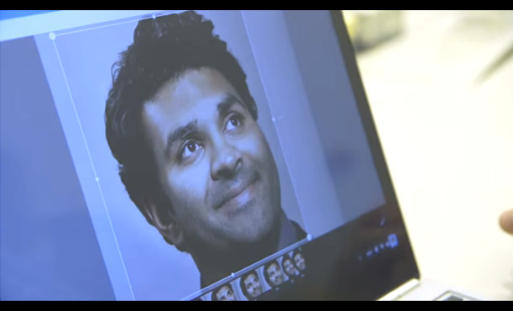The FOSS Force Video Interview It would be difficult to find anyone who’s been hanging in FOSS circles for more than a week or two…
FOSS Force
A familiar face to open source conference goers, Jono Bacon has left his post as director of community at GitHub after only six months.
Jono Bacon is no longer the director of community at GitHub. We wouldn’t fret for him too much. Something tells us he’ll land on his feet.
The only thing we know for sure right now is that there seems to be a bit of a shake-up going on at the popular code repository that he’s left behind. He made the announcement Monday in a post on his blog which leaves a lot of questions unanswered.
“Friday was my last day as a hubber,” he wrote, “and I wanted to share a few words about why I have decided to move on.”
We were pleased to discover an online retailer that caters to Linux and FOSS users and seems to understand exactly what free and open source is all about. This company gives a percentage of each purchase to free tech projects.
Are you one of those people who likes to use your laptop as a billboard to announce to the world that you’re a Linux user? Do you feel compelled to plaster stickers all over the outside of your laptop, maybe even your luggage, letting everyone know your favorite distro, some of your favorite FOSS programs or even a favorite programming or scripting language? Do you find yourself wishing there was an easy way to cover up the Windows key on your PC’s keyboard with something that actually represents an operating system you use?
The Raspberry Pi Report
As with many Linux distros, perhaps the biggest strength of the Pi is the community that surrounds it.
One of the biggest questions I get asked is “why would I want to use a Raspberry Pi over Device X?” Almost always, the other device has a better processor, more USB ports or something else that should make the answer to choose Device X over the Pi.
 I’m not going to argue that the Raspberry Pi should always be the device of choice for every situation. Sometimes it just doesn’t cut it and using it in a given situation will cause more work than necessary. Whenever I am asked the above question, I usually get the details of what the person is intending to do, and then talk about the pros and cons of the Raspberry Pi for that use. One of the things I always remind the person is that no matter how good Device X might be, you need to consider the community behind the device. In my opinion, a constantly growing supportive community is what the Pi offers over all other devices.
I’m not going to argue that the Raspberry Pi should always be the device of choice for every situation. Sometimes it just doesn’t cut it and using it in a given situation will cause more work than necessary. Whenever I am asked the above question, I usually get the details of what the person is intending to do, and then talk about the pros and cons of the Raspberry Pi for that use. One of the things I always remind the person is that no matter how good Device X might be, you need to consider the community behind the device. In my opinion, a constantly growing supportive community is what the Pi offers over all other devices.
The Heart of Linux
The lead developer of Pinguy Linux, Antoni Norman, has said he’s considering shutting the project down due to a lack of funds. This raises the question: How much do you give to the distro you use?
I think of them as our own little personal supernovas. There’s a brilliant flash when a Linux distro tosses in the towel and calls it quits. But whenever a distro goes away, it leaves behind the people who’ve used and worked with it on a daily basis. While there’s no formation of a black hole, there is a hole at the center of users’ work schedules and that disruption can do serious damage to those relying on the distro’s stability. And while getting a new distro installed and running isn’t the nightmare it used to be, it’s still a pain.
FOSS Week in Review
Also included: OSCON folds tent, Pinguy developer might pull plug, Libreboot joins with GNU, Arch and Fedora repository news, and a new version of the Pi Zero.
Back in the hippie days there was a lot of talk about plastic people, which would be fake people. Back in those days, plastic people were to be avoided, as was plastic anything.
How times have changed. These days we embrace a plastic world. As example, we replace carefully hand crafted wristwatches made to last a lifetime with electronic rhinestone wearables that will be obsolete in a year or two, just because they tell us how fast and how seldom we walk.
You see, by the ’60s definition, plastic doesn’t need to be made of plastic to be plastic. You dig?
We also embrace virtual, meaning plastic or fake, reality, and Android N (which has no name yet but I’m betting on Nutty Buddy) intends to steal virtual thunder away from Oculus, Facebook and Windows by becoming the VR platform that can be carried in your pocket everywhere you go. Soon, there’ll be no need to travel to Paris or Milan, just put on your headset and go…. Hey, when did they put Google ads on the Eiffel tower?
Enough of that, on to this week’s news, garnered from the FOSS Force News Wire…
The Video Screening Room
DIY health care is here. Open source is providing the ways and means for amazing and affordable advances, like an artificial pancreas built using a Raspberry Pi, and letting people take charge of their health care in the process.
If you love open source, you’re going to love browsing thru the many OSCON 2016 videos being uploaded to YouTube. The one I found most fascinating is this short clip in which Dana Smith explains about an artificial pancreas built using a Raspberry Pi.
Thursday morning we published a video interview with Jeff Hoogland, the founder and lead developer of Bodhi Linux. What better time, we figured, to take a look at the distro’s latest and greatest, which was just released last weekend.
Bodhi Linux was the first distro I ever loved.
Actually, I suppose I loved Mandrake first, which I installed back in ’02 and used, like. forever. But at that time it wasn’t the distro I loved so much as GNU/Linux. I had no experience with other distros, even though I knew about them, so Mandrake represented, by proxy, all of Linux. Such is the way it goes with new Linux users.
Around 2008, when Mandrake/Mandriva’s future became uncertain, I moved on to distro hop for a while, not finding anything that really tripped my trigger. However, PCLOS came close, not surprisingly given its Mandrake roots, and became the distro I used for a number of years. Then an install failure, followed by an inability to login or open an account on the distro’s forum, prompted me to move on.
Which led me to Bodhi, a resource sipping Ubuntu based distro using the Enlightenment desktop version 17, or E17, which at the time was the most elegant and configurable of the lightweight desktops available.
The FOSS Force Video Interview Just a few days before releasing Bodhi Linux 3.2.1, Bodhi’s founder and lead developer, Jeff Hoogland, took time out to…









